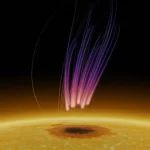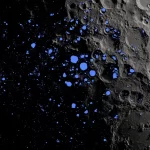Key Takeaways:
- Recent research suggests the potential for extraterrestrial life in Venus’ sulfuric-acid clouds, challenging the conventional understanding of habitable environments.
- Amino acids, the building blocks of proteins crucial for life, were found to be surprisingly stable in concentrated sulfuric acid, opening new possibilities for alternative biochemistries.
- The study highlights the need for exploring diverse liquid solvents on planets and moons to understand their potential to support life beyond Earth.
- The research team proposes concentrated sulfuric acid as a potential solvent for life in Venus’ clouds, where liquid droplets vary from 81% to 98% acid, with the rest composed of water.
- The findings have implications for future missions, such as the Venus Life Finder, scheduled to launch in 2025, aiming to search for organic material within Venus’ cloud-layer particles.
Recent research has ignited a paradigm shift in astrobiology, focusing on the sulfuric-acid clouds enshrouding Venus as a potential habitat for extraterrestrial life. This groundbreaking study, part of a special collection in the journal Astrobiology, challenges the traditional view of habitable zones and calls for the establishment of a new branch of astrobiology and organic chemistry.
Janusz Pętkowski, a research affiliate at the Massachusetts Institute of Technology (MIT), questions the assumption that life beyond Earth must adhere to the same biochemistry as life on our planet. The study emphasizes the importance of liquid mediums for life and explores the possibility of alternative solvents, diverging from the reliance on water.
A pivotal discovery in the research reveals the stability of amino acids, the essential building blocks of life, in concentrated sulfuric acid. This stability sparks interest among astrobiologists, as it broadens the scope of biologically relevant molecules that could be integral to alternative biochemistries based on sulfuric acid solvents.
Pętkowski proposes the investigation of various liquid solvents on planetary surfaces, subsurfaces, and clouds, emphasizing the need to understand the basic chemistry in potential alternative solvents for life. The dominant liquid on Earth is water, but Pętkowski points out the presence of other liquid solvents in our solar system, encouraging a more comprehensive exploration.
The research team is particularly intrigued by concentrated sulfuric acid as a potential solvent for life in Venus’ clouds. These clouds consist of liquid droplets with acid concentrations ranging from 81% to 98%, with the remaining composition being water. Interestingly, amino acids and other organic materials continuously arrive on Venus with meteoritic material, further enriching the potential for habitability.
The aggressive nature of sulfuric acid in Venus’ clouds raises the possibility of alien biochemistry, fundamentally different from life on Earth. Pętkowski and his colleagues are eager to explore organic chemistry in concentrated sulfuric acid to understand complex reactions occurring in the Venusian cloud layers, situated approximately 30 to 40 miles above the planet’s surface.
This research is expected to play a crucial role in informing future missions to Venus. The Venus Life Finder mission, scheduled for launch in early 2025, aims to search for the presence of organic material within cloud-layer particles at different altitudes. Additionally, projects under the Morning Star Missions to Venus initiative, led by MIT astrophysicist Sara Seager, are anticipated to contribute valuable insights.
The unexpected discovery that concentrated sulfuric acid is not universally hostile to organic chemistry challenges preconceived notions. The stability of amino acids in this aggressive solvent supports the hypothesis that complex organic chemistry is feasible in Venus’ clouds, providing a new perspective on the potential habitability of Earth’s celestial companion.
The research, in collaboration with breakthrough initiatives, hints at the increasing likelihood of Venus as a past or even current abode of life, prompting a reevaluation of our understanding of the cosmos.


